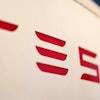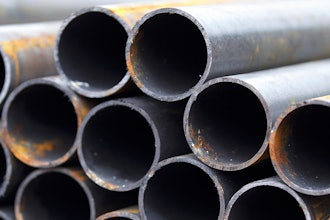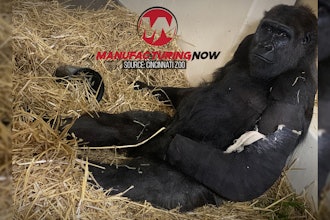From Bloomberg News
Manufacturing in the dozen nations that share the euro expanded for a seventh month in January as exports spurred economic growth.
An index based on a survey of about 3,000 purchasing managers was at 53.5 after December's 16-month high of 53.6, said NTC Research Ltd., which compiled the measure for Royal Bank of Scotland Group Plc. Economists predicted a gain to 54.1, according to the median estimate of 36 forecasts in a Bloomberg survey. A reading above 50 signals growth.
``The general picture in the euro zone is satisfying, but risks are more evident than what we saw in December,'' said Adolf Rosenstock, an economist and adviser to the Bank of Japan. ``The relatively high level of the PMI is exclusively due to confidence in Germany and that confidence depends on exports.''
The index for German manufacturing increased more than economists predicted, to 55 from 53.6. Siemens shares rose the most in more than two years last week after the chief executive officer of Europe's biggest engineering company said sales of trains to China and power equipment to Qatar helped fiscal first- quarter orders rise 31 percent.
Bonds Rise
The euro fell 0.6 percent against the dollar to $1.2081 at 14:47 p.m. in Frankfurt. Declines for bonds were limited after manufacturing reports from France, Spain and Italy showed unexpected declines in December.
The index of French purchasing managers fell to 50.7 from 52.2, less than the 52.5 median expectation in a survey of economists by Bloomberg News. The Italian and Spanish indexes fell to 53.5 and 52.6 from 54.1 and 53 respectively.
Orders for German plant and machinery rose 12 percent in December from a year earlier, led by demand from within the country, the VDMA industry association said today.
While growth is gathering pace in Europe, rising oil costs leave consumers with less money to spend. The ECB predicts inflation will stay above 2 percent for a seventh year in 2006 as quickening growth and near-record oil prices spark demands for higher wages. Increased payroll costs would damp hiring, employers have said.
Jobless Increase
Unemployment in the euro area rose in December for the first time in more than two years, a sign the economy may not be growing fast enough to create jobs, the European statistics office said today in Luxembourg. The jobless rate rose to 8.4 percent from 8.3 percent in November, the first increase since November 2003.
A sub-index for employment in European manufacturing fell to 49.6 from 50.3 the previous month, its lowest since September 2005, NTC Research said.
German unemployment unexpectedly jumped in January for the first month in four. The number of unemployed, adjusted for seasonal swings, rose by 69,000, the Federal Labor Agency in Nuremberg said yesterday. German retail sales fell for a second month in December, a separate release showed yesterday.
Still, European manufacturers were the most optimistic in more than a year, according to a survey published yesterday by the European Commission in Brussels.
In Germany, the region's biggest economy, business confidence rose to the highest in more than five years this month. In France, the area's second-largest economy, unemployment rate fell to the lowest level in almost three years, while consumer confidence climbed more than expected, government reports showed yesterday.






















